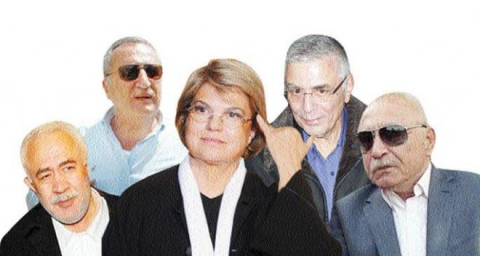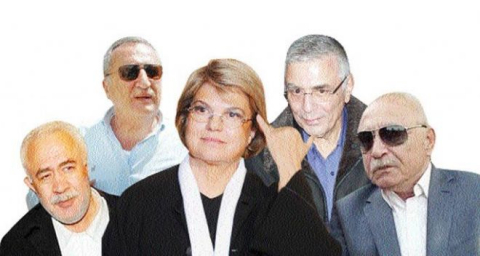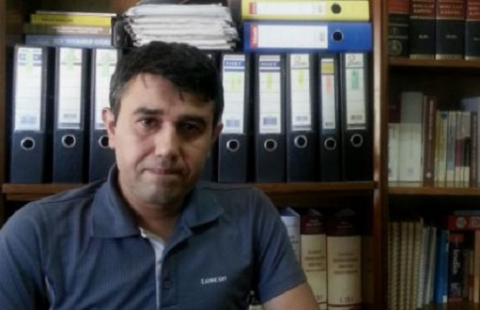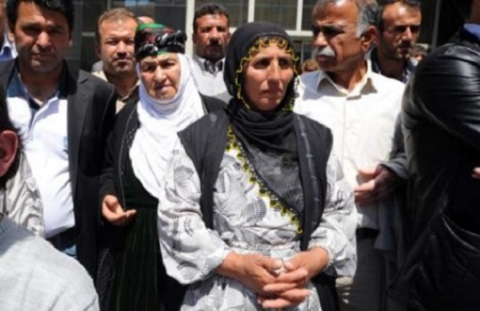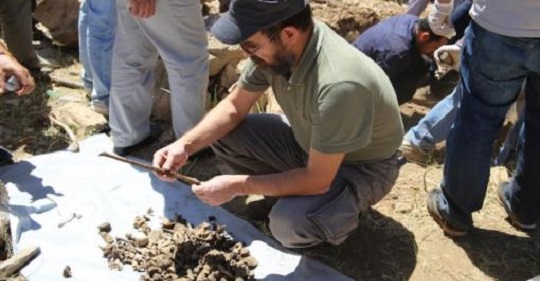
Who are the perpetrators in the Kızıltepe JİTEM case?
In the hearing held in Ankara on 3 March 2015 of the courtcase involving the murders committed by unknown perpetrators and enforced disappearances that took place in the Kızıltepe District of Mardin Province in the 1990s, which is known as the Kızıltepe JİTEM [Gendarmerie Intelligence and Anti-Terror Unit] case, the court halted the case on the grounds that permission had to be obtained from the Supreme Board of Judges and Prosecutors (HSYK) to try high-ranking military commanders. 9 suspects – 4 military personnel and 5 village guards – are on trial at the Kızıltepe JİTEM case.
The problem of obtaining “permission” in trials
The Ankara 5th High Criminal Court ruled that permission had to be obtained from the Supreme Board of Judges and Prosecutors (HSYK) to try retired colonel Hasan Atilla Uğur and the Diyarbakır Provincial Gendarmerie Commander of the period, Colonel Eşref Hatipoğlu, because of their position/duty. The trial was halted until permission is obtained.
The Law of Criminal Procedure (Article 161, Clause 5) states that in crimes they commit in fulfilling their duties, the highest ranking security chiefs of a province (such as police chiefs or high-ranking military officials) are subject to the same trial procedures judges are subject to due to their duty. In other words, permission from the HSYK determines whether security chiefs are to be tried for crimes they have committed in connection with their duties – as is the case with judges.
On the other hand, Clause 8 of the same article of law states that the ‘organized crime’ that is also the subject of the Kızıltepe JİTEM case, and crimes subject to Article 10 of the TMK, shall be directly investigated, without requiring permission, even if they are committed on duty, or due to duty. In addition to this, in its verdict issued on 29 January 2015 in the Lice Massacre Case, the HSYK reversed a similar judgment by the court for the halting of the case, and in cases referring to the related crimes, stated, “a verdict of halting or abatement of the case cannot be given regarding the necessity of permission or decision for investigation”.
In our opinion, the initiative the panel of judges has taken for the seeking of permission is incorrect in view of the relevant articles of law and the HSYK’s previous decision.
Besides, the bill of indictment in the Kızıltepe Case has been prepared, and the court has accepted it. Now, under such circumstances, the permission sought must be retroactive. In other words, the panel of judges has not used available data [findings] for the continuation of the Kızıltepe Case, and despite this, has sought permission. This instance exposes not only the administrative but also the judiciary difficulties in Turkey in trying state officials who have committed a crime.
Indictment and suspects
The bill of indictment states that the suspect military personnel established a team called “Bıçak Timi” [“The Knife Team”] affiliated with JİTEM and composed of village guards and confessors, and that this team committed murders, executed individuals they detained, and destroyed their remains.
The military personnel who are suspects in the case include retired Colonel Hasan Atilla Uğur, who remained under arrest for a period of time in the Ergenekon case, the Diyarbakır Provincial Gendarmerie Commander of the period, Colonel Eşref Hatipoğlu, Gendarmerie Commando Company Commander Ahmet Boncuk, and Sergeant Major Ünal Alkan.
These four military personnel are alleged to be the directors in Mardin and Diyarbakır of the Gendarmerie Intelligence and Anti-Terror Unit (JİTEM). The village guards alleged to be members of the “Bıçak Timi” [“The Knife Team”] are Abdurrahman Kurga, Mehmet Emin Kurga, Ramazan Çetin, Mehmet Salih Kılınçaslan and İsmet Kandemir.
Who are Hasan Atilla Uğur and Eşref Hatipoğlu?
The Enforced Disappearances Database prepared by the Centre for Truth, Justice and Memory contains 5 cases of enforced disappearances naming as suspects these two high-ranking military officials for whom permission for trial has been sought. These 5 cases on our database feature accounts of how 11 individuals were forcibly disappeared. You can access on the enforced disappearance cases which name Hasan Atilla Uğur and Eşref Hatipoğlu as suspects by clicking on the case titles below:
- The Enforced Disappearance of Abdurrahman Abi and Süleyman Abak, 1994
- The Enforced Disappearance of Abdulvahap Ateş, 1994
- The Enforced Disappearance of Nureddin Yalçınkaya and Şemsettin (Nejat) Yalçınkaya, 1995
- The Enforced Disappearance of Abdulbaki Birlik, Kemal Birlik, Zeki Alabalık and Zübeyir Birlik, 1995
- The Enforced Disappearance of Mahmut Abak and Mehmet Emin Abak, 1995
